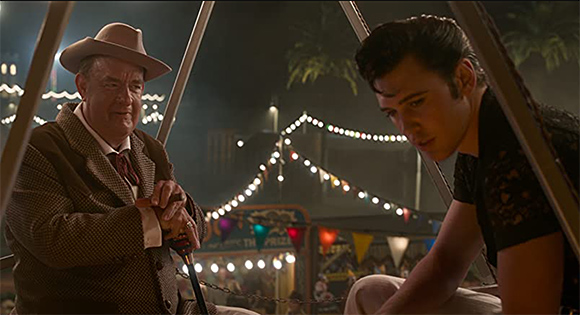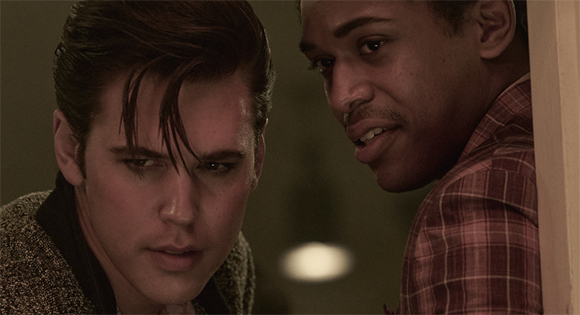“Elvis, like an enormous mirror, displays our personal struggles with forces of excellent and evil, and creation and destruction. In an actual approach, once we see Elvis we see ourselves. Symbolizing the battle between the true and false in us all, Elvis’s large enchantment lies in his energy as an archetype — his epic rise and fall captures what’s in all of us.”
— David Rosen in The Tao of Elvis
Baz Luhrmann’s movie Elvis is a phantasmagorical work. It follows this director’s juiced-up William Shakespeare’s Romeo and Juliet; Australia, a spellbinding old school journey story; Strictly Ballroom, a celebration of soulful people who profit from their creativity on the ballroom dance ground; and Moulin Rouge, a love-drenched romance.
Weinshanker, one of many producers of Elvis, sums up this revved-up film:
“This can be a frenetic, thousand-miles-an-hour, by the seat of your pants approach of storytelling.”
The movie captures Elvis’s over-the-top performances, flooding the display with shade, costumes, and digicam angles; the singer/songwriter comes throughout as an excited, devoted, and daring performer. However there are additionally small, quiet scenes, the place one other aspect of the person emerges.
A Particular Form of Chief
Rock critic Dave Marsh factors to a different dimension of the King: “Elvis Presley was greater than something a religious chief of our technology.”
His music and his approach of being on this planet touched on many themes of his time, maybe greater than some other musician. And his reputation has by no means ceased. If we have been to assign “key phrases” to his story, the listing would come with: love, goal, religions, that means, intercourse, success, cash, fame, music, sinner, relationships, youth, middle-age, racism, black music, self-destruction, legacy.
This film touches on all these topics.
Quest for Which means and Function
Elvis Presley’s (Austin Butler) brief however eventful lifetime of 42 years was a quest for that means and goal by means of the medium of common music, gospel, and rhythm & blues. He began on a path of transformation and came across the trail of dependancy and self-destruction. Like all of us, he skilled life as each saint and sinner.

Love/Hate Relationships
Presley, who was born on January 8, 1935, in Tupelo, Mississippi, had a love/hate relationship with many individuals in his life, together with his mom (Helen Thomson) and father (Richard Roxburgh) who each anticipated an excessive amount of from him.
Probably the most formidable individual in his life and musical creer seems to be Col. Tom Parker (Tom Hanks), his immensely formidable, grasping, and self-centered supervisor for 20 years. A lot of the movie is informed from his perspective. Half conman, half showman, and half management freak, Parker (Elvis calls him “admiral”), Parker orchestrated Elvis’s profession by means of tough occasions, a stint within the military, film stardom, and a protracted stint in Las Vegas. Showman and handler, he succeeded in making Elvis into probably the most profitable solo recording artist of all time. A few of his iconic performances are reproduced within the movie, utilizing remixes of precise Elvis recordings.
Elvis’s early music was influenced by Black musicians corresponding to B. B. King (Kevin Harrison, Jr.), and he typically went to Black golf equipment to soak within the sounds. Additionally vital within the King’s life was his spouse Priscilla Presley (Olivia DeJonge) who was not profitable in mitigating his extra harmful habits.

Openness
Maybe the most important take-away from this portrait of Elvis is his openness to new types of music and efficiency. Openness, says Catholic sister Joan Puls, is “the angle and situation that’s on the coronary heart of all spirituality.” This marks him as a religious chief greater than his recordings of gospel songs.

